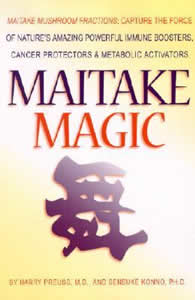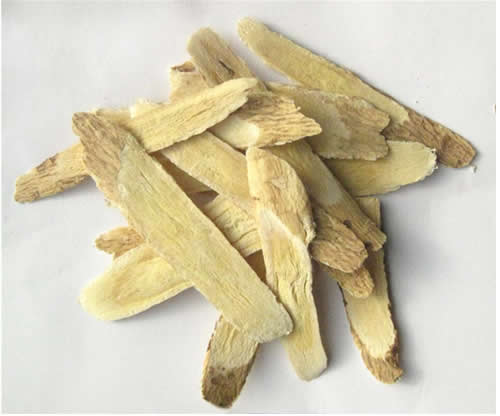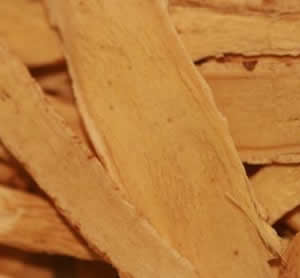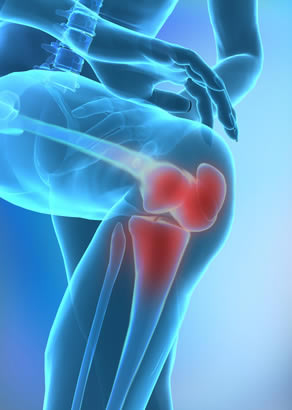The maitake mushroom (Grifola frondosa) contains beta-glucan, which has strong effects on the immune system. The most effective ingredient in the mushroom is its beta-glucan, a polysaccharide compound that boosts the immune system through the activation of macrophage cells, natural killer cells and T-cells. The primary polysaccharide, beta-D-glucan, is well absorbed when taken orally and is currently under review for the prevention and treatment of cancer, and as a supportive tool for HIV (human immunodeficiency virus) infection.
Maitake Mushroom and HIV
Maitake mushroom appears to work on several levels to fight viral infection, including direct inhibition of the virus, stimulation of the body’s own natural defence system, and added protection against opportunistic infections. In 1991 a sulfated maitake fraction was found to be active in a preliminary anti-HIV drug screening test conducted by the NCI (National Cancer Institute). According to the NCI’s Developmental Therapeutics Program In-Vitro Testing Results, the maitake test compound demonstrated significant dose-related antiviral activity.
Maitake mushroom and the maitake D-fraction prepared from them contain a type of polysaccharide, called beta glucan. D-Fraction, has been reported to exhibit an antitumor activity through activation of immunocompetent cells, including macrophages and T cells, with modulation of the balance between T-helper 1 and 2 cells. The most last development is the MD-fraction, a proprietary maitake extract its Japanese researchers consider to be a notable advance upon the preceding D-fraction. The D-fraction, the MD-fraction, and other extracts, usually in combination with whole maitake powder, have shown particular promise as immunomodulating agents, and as an adjunct to HIV treatment.
Dr Hiroaki Nanba, a professor in the “Department of Microbiology of Kobe Pharmaceutical University” in Japan, pioneered much of the research done with maitake mushroom on a variety of subjects. At a conference, 1992, in Fukuoka, Dr. Nanba announced his findings that a maitake extract was able to prevent HIV destruction of T-helper lymphocytes by as much as 97% in vitro.
“In 1991, I conducted research on Maitake extract against HIV, which is believed to be a cause of AIDS. It is found that sulphated Maitake extract has the ability to prevent HIV from killing helper T cells (CD4 cells). The death of CD4 cells is critical in the progression of an HIV infected person to AIDS. In this test, the HIV infected CD4 survived almost 100 percent at sample concentrations around 1pg/mg. Such anti-HIV activity of a sulphated form of maitake mushroom has also been confirmed by the National Institute of Health in Japan as well as the National Cancer Institute (NCI) in the States. In fact, doctors from NCI have admitted that the sulphated Grifola frondosa extract is most effective among all anti-HIV polysaccharides known to date and is as powerful as the toxic drug AZT.” Dr Hiroaki Nanba. (Maitake and HIV Infection)
A human trial of attempted to indicate a beneficial effect on CD4+ count and viral load. In 35 HIV-positive individuals given maitake powder and DM-fraction extract over 12 months, 85% reported an increased sense of well-being. Twenty patients reported an increase in CD4 + cell counts to 1.4–1.8 times, and 8 patients reported a reduction to 0.8–0.5 times. Viral load was reported to increase in 9 patients and reduction in 10 patients. These findings demonstrate that Maitake D-fraction has a positive effect in HIV patients.
 Maitake D-fraction has powerful ability to potentiate and activate the cellular immune system. In a study of maitake cancer-preventive, 20 five-week-old mice were injected once with a carcinogenic substance. Beginning on the fifteenth day after injection, 10 mice were fed 0.2 mg of maitake D-fraction for 15 consecutive days. The other 10 received saline solution. After 30 days the number of mice with cancer was 30% percent in the maitake group and 93% in the control group. A study reported the Annals of the New York Academy of Science in 1995 found that when injected into rats, maitake D-fraction healed the function of the immune system. A 1997 study reported in the “Annals of the New York Academy of Science” found that maitake D-fraction was able to enhance the immune system and inhibit the spread of tumors in mice implanted with breast cancer. Maitake D-fraction, demonstrated anti-cancer effect against a line of human breast cancer cells in the tissue culture study, reported in the June 2011 Journal of Medicinal Food.
Maitake D-fraction has powerful ability to potentiate and activate the cellular immune system. In a study of maitake cancer-preventive, 20 five-week-old mice were injected once with a carcinogenic substance. Beginning on the fifteenth day after injection, 10 mice were fed 0.2 mg of maitake D-fraction for 15 consecutive days. The other 10 received saline solution. After 30 days the number of mice with cancer was 30% percent in the maitake group and 93% in the control group. A study reported the Annals of the New York Academy of Science in 1995 found that when injected into rats, maitake D-fraction healed the function of the immune system. A 1997 study reported in the “Annals of the New York Academy of Science” found that maitake D-fraction was able to enhance the immune system and inhibit the spread of tumors in mice implanted with breast cancer. Maitake D-fraction, demonstrated anti-cancer effect against a line of human breast cancer cells in the tissue culture study, reported in the June 2011 Journal of Medicinal Food. In a study of 176 people undergoing chemotherapy for cancers of the gastro-intestinal tract, ginseng and
In a study of 176 people undergoing chemotherapy for cancers of the gastro-intestinal tract, ginseng and  Astragalus increases white blood cell production of the body’s own anti-viral compounds alpha-and gamma-interferon. Findings in laboratory experiments and animal-based studies demonstrates it may act against viruses like the ones that cause colds. In one study, reported in 2011 in the Journal of Ethnopharmacology, astragalus extract were effective in stimulating immune cell responses and antibody production in lab animals.
Astragalus increases white blood cell production of the body’s own anti-viral compounds alpha-and gamma-interferon. Findings in laboratory experiments and animal-based studies demonstrates it may act against viruses like the ones that cause colds. In one study, reported in 2011 in the Journal of Ethnopharmacology, astragalus extract were effective in stimulating immune cell responses and antibody production in lab animals. Curcumin worked as well as a non-steroidal anti-inflammatory medication for cure of osteoarthritis of the knee in a study reported in the Aug 2009 edition of the Journal of “Alternative and Complementary Medicine“. A study by Italian scientists demonstrated that turmeric is a safe and effective herb for osteoarthritis. After 90 days of daily use of curcumin, compared to control group, participants manifested a 58% reduction in joint pain, stiffness and improve functionality of the joints as measured by the WOMAC (
Curcumin worked as well as a non-steroidal anti-inflammatory medication for cure of osteoarthritis of the knee in a study reported in the Aug 2009 edition of the Journal of “Alternative and Complementary Medicine“. A study by Italian scientists demonstrated that turmeric is a safe and effective herb for osteoarthritis. After 90 days of daily use of curcumin, compared to control group, participants manifested a 58% reduction in joint pain, stiffness and improve functionality of the joints as measured by the WOMAC (